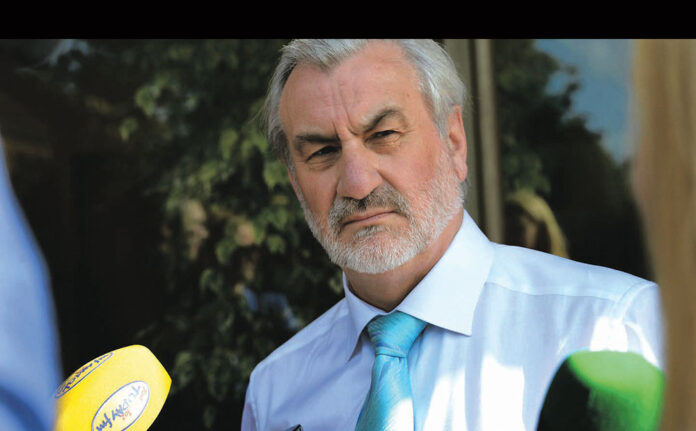THE MEDIATION process employed by the Irish Coast Guard to try to resolve differences in Doolin Coast Guard last year was only a “box ticking exercise”, a former volunteer has alleged.
Bernard Lucas, who spent 20 years volunteering with Doolin Coast Guard, claimed things could have been done differently during the mediation process.
“Mediation by its definition is ongoing and could take weeks or two or three months,” Mr Lucas told The Clare Champion.
After an extensive process, you might come to the conclusion this isn’t working and we need to rejig it. But how can you do that after after spending 90 minutes apiece with two groups with the six that resigned and the 12 that were left for a total of about three hours?
“I was very disappointed with the mediation process,” he said.
According to an IRG document, the mediator Kieran Mulvey is a well-respected national mediator and is the former Director General of the Workplace Relations Commission.
In his final report, Mr Mulvey stated, regretfully, it was his conclusion that no form of mediation would lead to a resolution of the matters of dispute in the Doolin Coast Guard unit.
“Some volunteers were expecting a further one-to-one engagement, but I indicated that the process I was conducting did not envisage such engagements and that the earlier engagements did not lead to a conclusion or resolution of the issues in dispute,” Mr Mulvey stated.
“Issues raised related primarily to the interactions with the Department/management of the Coast Guard Service, the lack of feedback from the Graphite and Departmental interviews, the
increasing constraints on the local operation of equipment and training opportunities within the Unit, the restrictions on training/ opportunities, particularly around the Cliffs of Moher, previous resignations, a previous dismissal, and equipment quality, storage and utilisation.
“In summary, the volunteers were of the strong opinion the bureaucracy around procedures, form filling and increasing health and safety regulation was leading to ‘an averse to risk culture in the Service’ rather than engaging with volunteers on the practical realities of search and rescue operations and their respective skills acquired, in some cases, of almost 30 plus years of volunteering in the immediate area of this part of West Clare.
“It is a matter of regret also that no individual feedback from the one-to-one interview sessions took place either from those conducted by Graphite HRM in February 2020 and Departmental Officials/Carr Communications in July 2021. There are circumstances which may have impeded such a full engagement.
“This created enormous frustration among the volunteers and was one of the primary reasons for the recent resignation of the six volunteers,” he stated.
Speaking in the Dáil last year, Acting IRG director Eugene Clonan said things started to go wrong in Doolin in 2020.
“It started there. It festered. One of our OICs left and we have another OIC there. That person is doing a great job. In May 2019, that person came to us and said that we were having problems there. What did we do?
“There is a sense that we did not do anything and that we were slow. We immediately engaged with them. I have detail here but I will not go into it. It sets out month by month for the last two years where we have engaged with it.
“I am trying not to go there. We got a HR company in to assist us because we work with the volunteers but we are not specialist HR people. This required this type of thing. We brought another company in. We have been working with them with the team to try and mend the ways,” he stated.
East Clare correspondent, Dan Danaher is a journalism graduate of Rathmines and UL. He has won numerous awards for special investigations on health, justice, environment, and reports on news, agriculture, disability, mental health and community.


